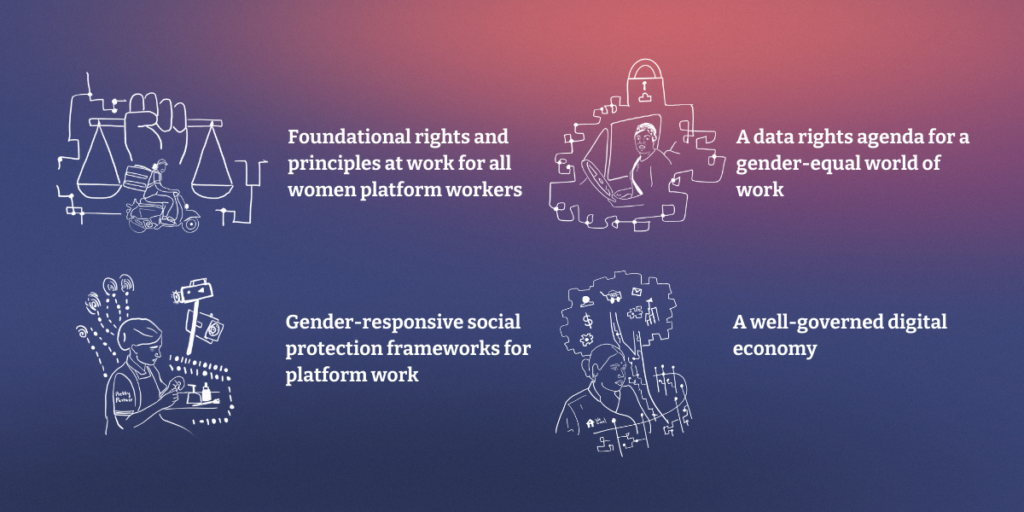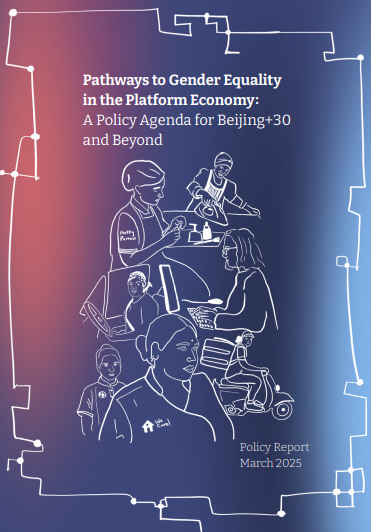Instead of flexi-work and increased labour participation for women, the platform economy has deepened intersectional inequalities—of gender, class, geography, and race—making women workers more vulnerable. At the Beijing+30 conjuncture, we urgently need multiscale policy responses that can get our institutions ready for a feminist future of work. To explore the building blocks of this imperative, IT for Change, DAWN, and Friedrich-Ebert-Stiftung (FES) convened a series of four consultations in the Asia-Pacific, Africa, Europe, and Latin America in February 2025, bringing together 50+ feminist scholars, practitioners, gender equality experts, lawyers focused on labor rights, and trade union representatives.
The synthesis report from these discussions was launched at the UN CSW on March 10, 2025. Here’s a summary of our key findings:
- Though labor exploitation in platform work arrangements affects all workers, there are unique gendered dimensions that impact women workers.
- Feminized platform work tends to be invisible, performed in private spaces, and often overlooked in policy discussions.
- Algorithmic work management systems discriminate against women and non-binary people and also penalize them.
- Social protection and hard-won, gender-based entitlements, such as maternity leave, have been rolled back in platform work arrangements.
- Location-based platforms evade their obligations for workplace safety by using simplistic solutions; for example, panic buttons in ride-hailing cabs and automatic lock-outs during time slots considered unsafe for women.
- In the case of online micro-work, prolonged exposure to harmful and violent content in data annotation and content moderation tasks takes a major toll on women workers’ physical and mental health.
Regulatory and policy responses across the globe are unable to effectively address the challenge of gender-based exploitation in platform work. Firstly, the policy blind spot in protecting the rights of women workers in home-based service work is a problem that spills over even into the platformization of such work. In emerging crowdwork arrangements, where women workers comprise a significant proportion, the application of the standard employment contract becomes difficult because of isolated work environments. A second challenge is the intensification of gender-based discrimination presented by techno-design architectures. Thirdly, holding transnational platform corporations to account for their labour rights obligations has been an uphill task, especially in the Global South.
Governments need to implement measures in four broad areas:

- Foundational rights and principles at work for all women platform workers
- Gender-responsive social protection frameworks for platform work
- A data rights agenda for a gender-equal world of work
- A well-governed digital economy

